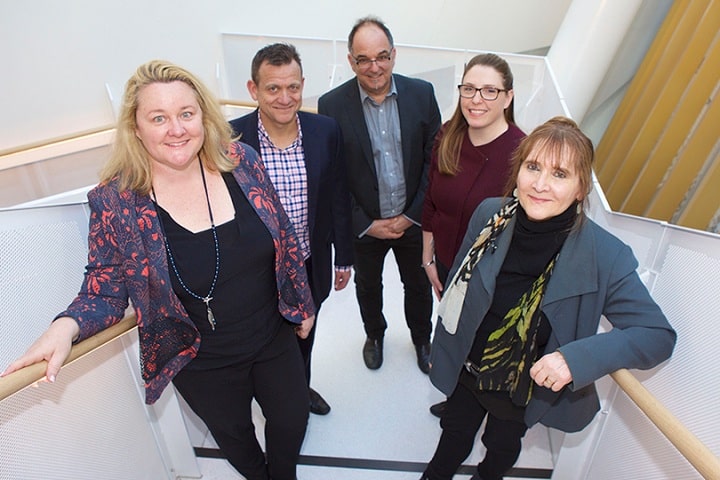New software to analyse the clinical data of aged care residents for signs of deteriorating health could reduce the number of emergency hospitalisations and allow more time for enacting end of life plans.
This clinical decision support is being developed as part of Telstra Health’s residential aged care software suite over the next two years in a $1 million partnership announced this week by RMIT University, Telstra Health and the Digital Health Cooperative Research Centre.
Significantly, it will mark the introduction of clinical decision support to predict deterioration – already used in acute care settings – into aged care.
Dr Victor Pantano, CEO of the Digital Health CRC, said the project had enormous potential to keep more aged care residents out of avoidable emergency care, as well as to provide earlier indications when residents are approaching end of life.
“Emergency hospitalisations are not only stressful for aged care residents and their families, but they also place significant additional demand on hospitals,” Dr Pantano said.
“To be able to treat residents earlier, and avert the need for hospitalisation, is extremely important.”
“Similarly, the earlier we can ascertain that an aged care resident is approaching end of life, the earlier we can enact their advance care plan and honor their preferences – an important process for the aged care resident, their carers and families, and the aged care provider.”
Importantly for aged care providers, better prediction of care needs is expected to enable more effective staffing and clinical resource planning, which has been identified as a crucial factor by providers who use Telstra Health’s aged care software.
RMIT Professor of Computer Science, Lawrence Cavedon, said the research team will work with gerontologists and aged care staff to interpret historical data and develop new predictive analytics techniques, as well as adapting existing decision support methods from the acute care sector.
“Researchers will work closely with clinicians to understand reliable signs of patient deterioration, how this might be identified from recorded data, and to manage any related ethical issues,” Professor Cavedon said.
Telstra Health has offered providers using its software to participate in the research, which has been met with a positive response from several providers.
The new algorithms will first be tested using historical data and then applied to current data in a trial setting. Ultimately, they will be integrated into Telstra Health’s Clinical and Care Management software.
Larissa Briedis from Telstra Health said the community cared deeply about the effectiveness of advanced care plans.
“While most people assume Advanced Care Directives will be enacted, the reality is that often this doesn’t occur, due to a lack of knowledge that end of life is approaching,” Ms Briedis said.
“Use of predictive analytics will enable more aged care providers, residents and their families to enact appropriate plans for end of life, according to the wishes of that person.”
As part of the Digital Health CRC’s Industry-PhD program, a PhD student will be embedded within the team.
“Through this innovative PhD program, we’re also helping build the digital health workforce Australia will need in the future,” Dr Pantano said.
The project is one of many being rolled out over the coming months through the Digital Health CRC, one of the world’s largest digital health R&D cooperatives.


















